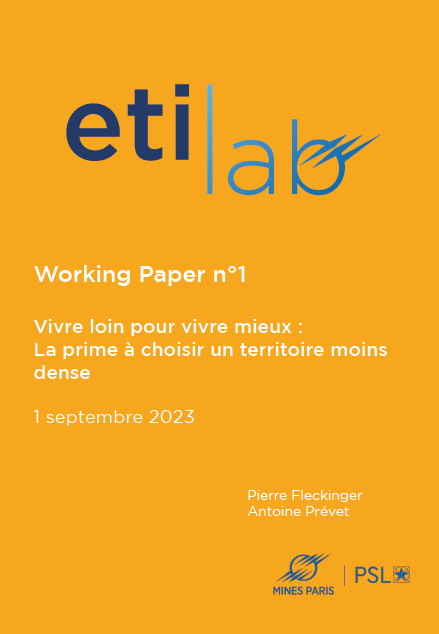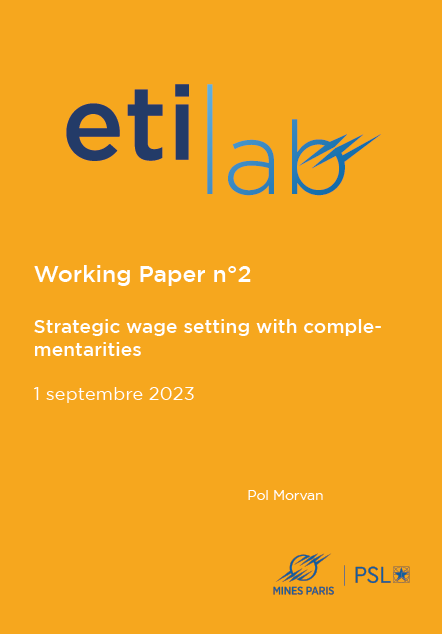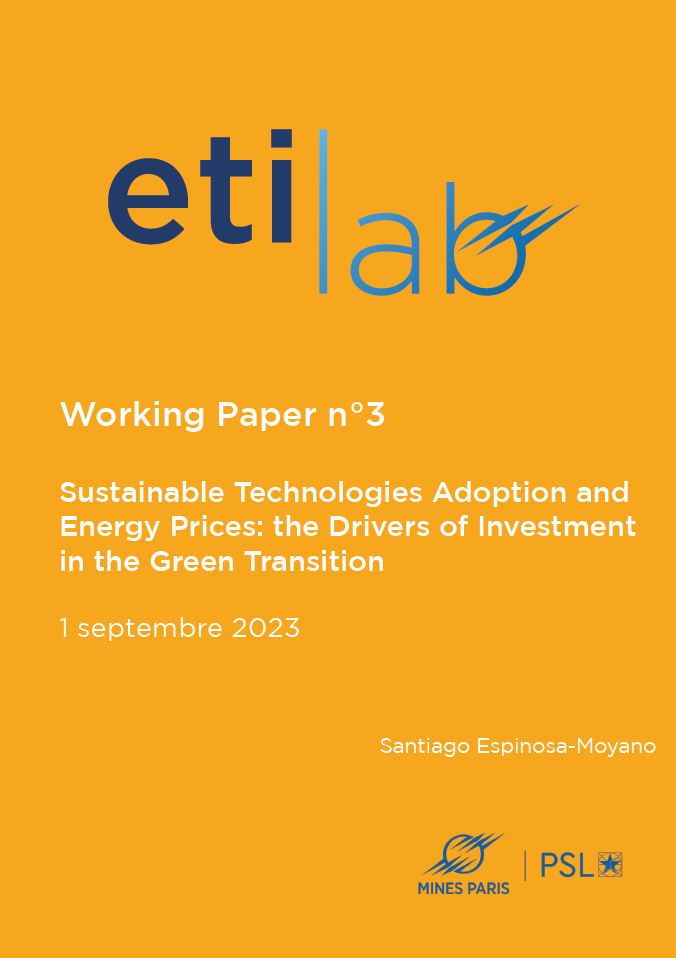WORKING PAPER N°1
Vivre loin pour vivre mieux :
La prime à choisir un territoire moins dense
Cet article porte sur l’attractivité des territoires français et de leurs entreprises
industrielles pour les salariés. Nous montrons l’existence d’une prime en pouvoir
d’achat immoblier venant compenser une diminution de la densité de population et
des externalités positives associées. Cette prime, mesurée enréduction du temps d’ac-
cès à la propriété, (i) augmente lorsque la densité diminue et (ii) est proportionnelle-
ment plus importante pour les cadres que pour les professions moins qualifiées. Le
modèle empirique introduit un effet fixe par entreprise et contrôle pour un vaste en-
semble de caractéristiques des individus, des établissements et des territoires. Les ré-
sultats sont établis grâce à la mobilisation d’une base volumineuse de micro-données
assemblant l’ensemble des contrats de travail signés dans les établissements des in-
dustries manufacturières français en 2019, les données d’entreprises ainsi que des in-
formations locales.

WORKING PAPER N°2
Strategic wage setting with complementarities
How does Firms’ location impact the structure and the wage setting strategies? A
simple theoretical model of firms’ wage setting strategies helps answering this question.
In this framework, firms have asymmetric production function, with two perfectly
complementary labor inputs but face different access to a scarce type of worker. This
paper shows that firms facing lower access to workers will pay higher rents and will
hire less than firms with a better access to the scarce resource. In this model, the equi-
librium is interior and unique and exists for a wide range of distributions of workers. I
observe that effects of exogenous shocks on productivity, scarcity of the resource and
differences in access to the latter are unambiguous and provide straightforward policy
implications. This paper examines the connection between size and wages and com-
pletes the long lasting observation that bigger firms pay higher wages. Firms’ location
is a key determinant underlining the relationship between wages and firm’s sizes, in
particular, a big firm is predicted to pay lower wages to skilled workers compared to
its smaller counterpart.

WORKING PAPER N°3
Sustainable Technologies Adoption and Energy Prices: the Drivers of Investment in the Green Transition
Estimating the impact of energy prices on environmental investment is deci-
sive for policy makers since this constitutes a possible incentive for the adoption of new, energy saving and less polluting technologies. However, finding a positive relationship between the two is not easy given that this impact is clearly heterogeneous. Using data from French manufacturing industry between 2017 and 2020, this paper studies this impact by considering interactions of energy price with other intrinsic characteristics of firms and plants as a cause of this heterogeneity. This analysis is extended to evaluate the inconsistency of results between both levels. A possible explanation maybe due to possible budget restrictions, which cause an increase in investment due to increases in the price of energy, not necessarily at the aggregate level of the firm but at the plant level, in those where its level of consumption is such that greater investment represents better efficiency of energy consumption.

